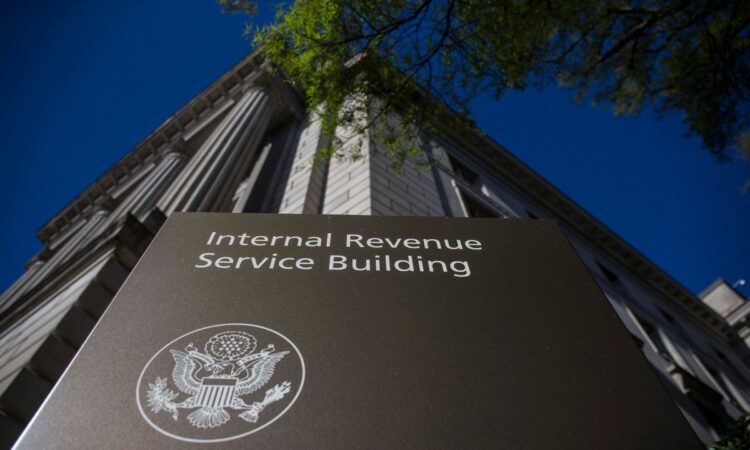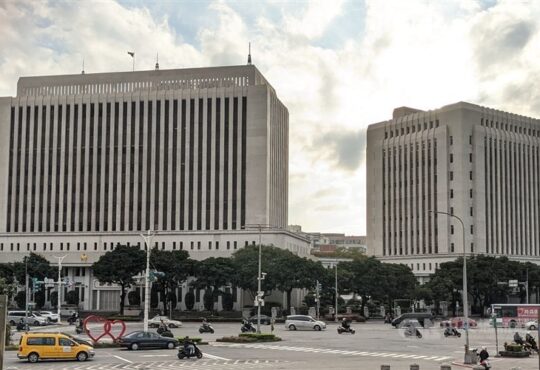
In connection with the Inflation Reduction Act of 2022, the IRS was promised $80 billion in much needed resources and, in turn, committed to focus its expanded enforcement efforts on wealthy taxpayers. Although the recent debt ceiling fight resulted in Congress eliminating up to $21.4 billion in Inflation Reduction Act funding over the next three years, the IRS remains optimistic that the remaining funds will be sufficient to enable it to improve customer service and enhance its enforcement efforts.
Because of the time it takes to hire and train new agents, there is an expectation that it will take time before the additional resources provided through the IRA will result in civil audits or criminal cases. However, in a July 14 release touting improved taxpayer service “[t]hanks to Inflation Reduction Act resources,” the IRS announced that it was taking “swift and aggressive” action to close the enforcement gap that had developed due to historical budget cuts and “to ensure [ ] high-income filers pay the taxes they owe.” Among other things, the release pointed to the IRS’s intent to pursue “about 100 high-income individuals” who have improperly claimed generous tax benefits available to residents of Puerto Rico and its pursuit of taxpayers who use “Maltese personal retirement schemes” to evade their U.S. tax obligations. While the IRS had previously expressed concerns regarding the potential abuse of the tax advantages available to Puerto Rican residents and an apparent loophole in the Malta-U.S. Tax Treaty, the fact that these enforcement efforts were announced in a release discussing the benefits of the IRA funding appears designed to convey the IRS’s continuing commitment to focusing its enforcement resources on high income taxpayers.
The Internal Revenue Code provides significant tax advantages to individuals who become bona fide residents of Puerto Rico, excluding from gross income (and exempting from federal income taxes) the income they derive from sources within Puerto Rico. Initially enacted in 2012, Puerto Rico Acts 20 and 22 (currently codified at Puerto Rico Act 60) provide additional incentives for companies and individuals to relocate to Puerto Rico by limiting their exposure to taxes imposed by the Commonwealth.
Specifically, under Act 20, companies based in Puerto Rico that are engaged in the exportation of specified services to non-resident individuals or foreign entities with no nexus to Puerto Rico are subject to a four percent tax rate on income derived from eligible export services, and receive generous exemptions from income taxes for dividends paid to investors, local municipal taxes, and real property taxes. Act 20 requires that the business have an office location in Puerto Rico..
Under Act 22, individuals who become a “bona fide resident” of Puerto Rico are eligible for a total exemption from Puerto Rico income taxes on all dividend and interest income realized or accrued after establishing bona fide residency. Additionally, any capital gains that are accrued after an individual establishes residency on the island are exempt from taxation and capital gains realized but not recognized prior to relocation are taxed at favorable rates depending on when the gains are recognized. Bona fide residency requires that an individual spend at least 183 days during a taxable year on the island, not have a “tax home” outside Puerto Rico, and not have a closer connection to the United States or foreign country other than Puerto Rico. Individuals with worldwide gross income of $75,000 or more who want to claim the benefits available to resident of Puerto Rico are required to file Form 8898 notifying the IRS of their residency on the island.
The IRS has long recognized the potential for abuse of the Act 20/22 regime. In October 2020, the Department of Justice and the IRS announced the indictment and arrest of Gabriel F. Hernandez, who served as Tax Manager and Partner-in-Charge of the Tax Division of BDO’s Puerto Rico office, in connection with his submission of fraudulent documents to enable an undercover IRS agent posing as a wealthy Arizona businessman to take advantage of the benefits available under Act 20. In the press release announcing Hernandez’s arrest, IRS-CI promised to “vigorously pursue any individuals and professionals that fraudulently enrich themselves by abusing government tax incentive programs.” Hernandez moved to dismiss the indictment in June 2021 and the case remains pending in the District of Puerto Rico.
In January 2021, the IRS’s Large Business and International Division announced a compliance campaign focused on taxpayers who claim tax breaks under Puerto Rico Act 22 without meeting the applicable residence requirements. Moreover, IRS agents have spent the last several years scrutinizing whether taxpayers claiming the benefits available to Puerto Rican residents (and the professionals that facilitated their claiming of these benefits) have misrepresented the amount of time spent in Puerto Rico and the sources of their income. More generally, the IRS has also had its eyes on other tax schemes based in Puerto Rico and has included abusive offshore captive insurance companies domiciled in Puerto Rico on its list of the “Dirty Dozen” tax scams 2021, 2022, and 2023.
Against this backdrop, the IRS’s recent announcement that it is pursuing high-income individuals who potentially abused the Puerto Rican tax regime is unsurprising. While individuals who claimed benefits under Puerto Rican law can expect detailed audits focusing on whether they met the residency and income sourcing requirements to qualify for the favorable tax treatment they have claimed, the July 14 release warns that the Service expects that “many of these cases [will] proceed to criminal investigation.” In light of the Hernandez case, the lawyers and accountants advising taxpayers may well also find themselves in IRS-CI’s cross-hairs.
Like many criminal tax cases, the Puerto Rico investigations appear to focus on whether taxpayers made affirmative misrepresentations to take advantage of favorable treatment available to qualifying taxpayers. By contrast, the IRS’s examination of Maltese Pension Plans (“MPPs”) will be complicated by the fact that the tax advantages associated with MPPs are predicated on the interplay between Malta’s Retirement Pension Act of 2011 and the U.S.-Malta Tax Treaty. Under Maltese law, individuals or employers are allowed to contribute non-cash assets, including highly appreciated securities, partnership interests, and cryptocurrency, to a trust or other investment vehicle. Unlike rules governing IRAs and Roth IRAs in the United States, such contributions are without limitations tied to employment earnings. When an individual participant turns 50, under Maltese law she can elect to receive cash lump sum distributions that will be exempt from Maltese income tax. Because the U.S.-Malta Tax Treaty provides an exemption for income tax on U.S. citizens or residents for “pensions and other similar remuneration” arising in Malta if the investment arrangement would also be exempt from tax under Maltese law, promoters have argued that U.S. taxpayers can use the Treaty to liquidate highly appreciated assets without paying U.S. taxes.
The IRS first raised concerns regarding MPPs in an August 2021 release regarding its “Dirty Dozen” list of tax scams. While that release described other transactions as “abusive,” it merely noted that some taxpayers were “tak[ing] the position that they may contribute appreciated property tax free to certain Maltese pension plans and that there are also no tax consequences when the plan sells the assets and distributes proceeds to the U.S. taxpayer.” The release added that the IRS was “evaluating the issue to determine the validity of these arrangements and whether Treaty benefits should be available in such instances and may challenge the associated tax treatment.”
Four months later, in December 2021, the IRS and Maltese tax authorities entered into a Competent Authority Arrangement (“CAA”) detailing a mutual understanding of what qualifies as a “pension fund” under the Treaty. The CAA asserts that MPPs established by U.S. taxpayers with no connection to Malta and that allow for non-cash contributions untethered to earned income amounts are not “pension funds” eligible for tax avoidance. Of note, the CAA asserts that it reflects the countries’ “original intent,” allowing the IRS to argue that the CAA’s narrow definition retroactively applies to pre-CAA arrangements.
In contrast to the uncertainty reflected in the August 2021 release, a June 29, 2022 “overview of the IRS’s 2022 Dirty Dozen tax scams” described MPP arrangements as one of “four transactions that are wrongfully promoted and will likely attract additional agency compliance efforts in the future.” The “misuse” of the Malta-U.S. Tax Treaty likewise appeared unequivocally on the 2023 Dirty Dozen list.
In June 2023, the IRS took two significant steps regarding MPPs. First, on June 7, 2023, the IRS and the Treasury Department issued proposed regulations that, if adopted, will designate MPPs as a “listed transaction.” This designation is reserved for deals that the IRS “has determined to be a tax avoidance transaction” and are subject to additional reporting obligations and record-keeping requirements for material advisors. Additionally, participants in listed transactions are subject to increased civil penalty exposure if they fail to include required information regarding reportable transactions with their returns. The IRS’s July 14 announcement referenced these proposed regulations identifying MPPs as listed transactions and added that the IRS was “already working to identify taxpayers that are improperly using Malta-U.S. Treaty rules to improperly claim exemptions.”
Second, in late June 2023, IRS-CI agents reportedly began visiting taxpayers and advisors and serving dozens of administrative summonses regarding MPP arrangements. The fact that the investigation of MPPs is being pursued by criminal agents suggests that, notwithstanding recent constraints on its resources, the IRS believes it is now in a position to pursue complex investigations.
The government often has difficulty proving criminal tax cases arising out of sophisticated transactions given its need to explain the transactions to a jury and prove (beyond a reasonable doubt) that the defendants acted “willfully” (i.e., knew that the claimed tax treatment was unlawful). To the extent criminal charges are brought against taxpayers who executed MPP transactions before the CAA was adopted in December 2021, the IRS’s ability to prove criminal intent will be complicated by the fact that it needed to clarify the Treaty language. But even prosecutions of taxpayers who executed MPP transactions after December 2021 will be hindered by the fact that, unlike individuals who misrepresented their residence or source of income to claim benefits under Puerto Rico’s tax regime, the tax benefits associated with MPP transactions were predicated on a loophole in the Treaty as opposed to misrepresentations.
Regardless of whether these new investigations result in criminal charges, the IRS’s focus on the alleged misuse of the Puerto Rico Act and MPP transactions indicates its commitment to using the IRA funding for enforcement against high income taxpayers. Highlighting these enforcement efforts may also reflect the political reality that even members of Congress who want to create a misperception that the IRS will be hiring 87,000 new agents to scour tax returns and ruin the lives of average Americans may hesitate to fault the IRS for chasing wealthy individuals who used offshore transactions to reduce their tax obligations.
To read more from Jeremy Temkin, please visit www.maglaw.com. Emily Smit, an associate at the firm, assisted in the preparation of this blog.
Check out my website.






